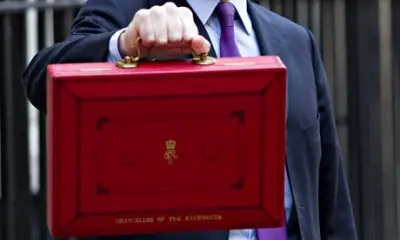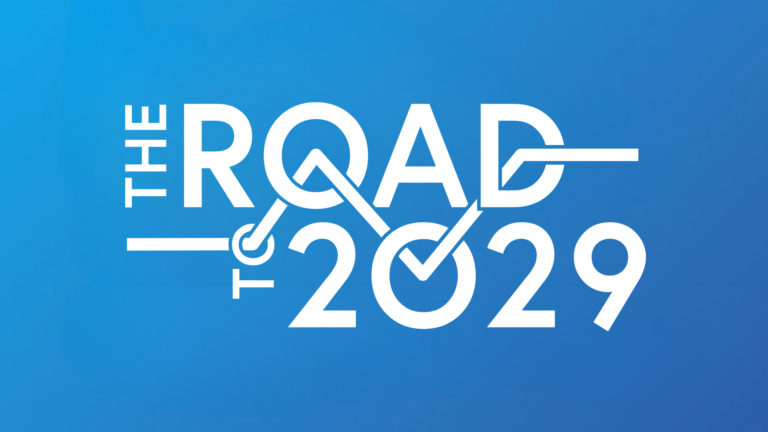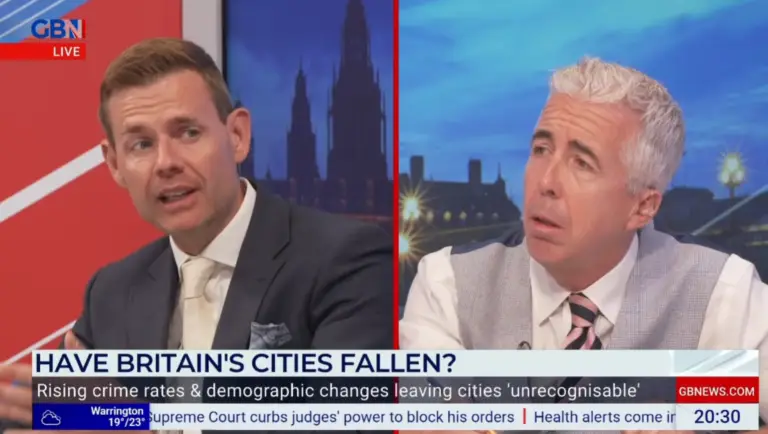The Chancellor clearly and shamelessly targeted marginal seats where the make-up of the next Government will be decided. As he spoke, constituency teams up and down the country will have been eagerly scribbling down the policies that will be splashed across their campaign leaflets – policies like boosting bingo clubs in Harlow, and filling potholes in Northampton North.
To complement the ongoing rhetoric about reducing the deficit, the budget’s most populist, easy-to-remember policies were designed to resonate with the ‘man on the street’ – policies like cutting the duty on beer by a penny in every pint.
The battle lines have now been clearly drawn for the General Election, and Labour will be under no illusions about the task ahead. Their fight is centred on the cost of living and fairness, as set out in a credible response by Ed Miliband in the House today.
More analysis from PLMR’s resident Conservative, Labour and Liberal Democrat party experts is below, along with our Budget Podcast.
James Ford: A Budget for Savers and a Battle for Middle England
James Ford is the Adviser to the Digital Chamber of Commerce at the London Chamber of Commerce and was formerly an aide to Mayor of London Boris Johnson (2010-12), specialising in transport, environment and digital policy.
Yesterday the Royal Mint unveiled the new look £1 coin which will enter service in 2017. Today, the Chancellor staked his claim to still be the man in Number 11 when those coins enter service. In an unexpected ‘giveaway’ budget, good news on unemployment, the deficit and economic growth took a back seat as George Osborne outflanked Labour and opened up a new political battleground ahead of next year’s general election.
The Chancellor faced a difficult dilemma with this budget, being effectively pulled in three different directions by various factions within his own party. The right wing rump on the backbenches wanted him to ease the burden on higher rate tax payers. Vocal, campaigning MPs like Robert Halfon and others urged him to appeal more strongly to lower paid voters struggling to make ends meet. And the Tory commentariat urged him to be bold and radical in an effort to deliver a ‘game changer’ that would boost the Conservatives’ electoral ambitions. Ever the master strategist, George Osborne opted to deliver for all three audiences.
A relatively modest rise in the threshold for the 40p tax rate, coupled with making clear that changes to the personal allowance would benefit all taxpayers, sent the right message to higher rate tax payers and will counter Ed Miliband’s rhetoric about the ‘squeezed middle’. It also avoided opening up the Conservative’s right flank to attacks from a resurgent UKIP (tellingly, Nigel Farage used an article in today’s Independent to attack the 40p rate).
The predicted rise in the personal allowance was enough to help low earners without giving away too much on a policy that polling has shown benefits the Lib Dems rather than the Conservatives. The ‘Halfon agenda’ will have been satisfied with the scrapping of another fuel duty rise as well as populist measures such as halving the tax on bingo, cutting the duty on beer and the extension of the Help to Buy scheme until 2020.
But the big ‘Budget Surprise’ was a series of bold measures aimed at savers and pensioners. The creation of a new bond for pensioners, a generous reform of ISA allowances, and the slashing of several taxes affecting pensions were radical initiatives that had not been trailed or expected. Clearly the Chancellor expects pensioners and savers to play a major role in the coming election and has staked a strong claim for their votes. The pension changes will undoubtedly boost the financial services industry, hand savers more freedom and boost Treasury tax revenues. The next twelve months will be a good time for independent financial advisers.
However, the changes are probably much more significant politically, allowing as they do Osborne to drag the political debate to ground that is more favourable to the Conservatives. It was clear from Miliband’s rather lacklustre response that Labour had not anticipated the move and may yet take some time to develop an effective response, let alone a counter.
This was by far Osborne’s strongest Budget performance yet and will hopefully undo much of the damage done to his reputation by the ‘Omnishambles’ budget of 2012. Such a political Budget will also have burnished Osborne’s credentials within his party and strengthened the suspicions that the Chancellor is ‘on manoeuvres’ ahead of a potential leadership bid. I imagine Boris Johnson will have squirmed listening to this Budget almost as much as Ed Miliband did.
Ros Trinick: Ed ignores the Budget, targeting the #CostofCameron
Ros Trinick is an Account Director at PLMR and leads one of PLMR’s Teams working on some of our most important professional services, health and social care, planning and third sector accounts. In her private life she is a Member of the Labour Party.
It’s a huge challenge to retort quickly to any Budget and the Chancellor delivered a number of surprises that nobody, outside of the Treasury and Number Ten, was expecting today. The announcements on pensions and savings for instance require detailed analysis, and the Labour team wouldn’t have had the time to crunch the numbers.
So Ed ignored the content. He stuck to the lines he knows and the messages he hopes will resonate with the electorate. And those are; while the economy may be recovering, the majority of Britons remain worse off with only the rich ‘chums’ of Cameron and Osborne seeing any benefit.
Miliband knows that Labour’s reputation on economic stewardship is not going to win the next election. Many people still associate Labour with the crisis that led to our current age of austerity. Less than 20 per cent of the population think the economy would be better if Labour were in power (according to YouGov polling conducted just before the Budget) and Ed Balls remains less popular than George Osborne, whose ratings continue to improve. Miliband also knows this was a hugely political Budget, with the Chancellor delivering a number of measures targeted at the ‘makers, doers and savers’ that Conservatives hope will deliver them a majority in 2015 (just look at the stony-faced reaction to measure after measure targeting UK manufacturing and exports from the Business Secretary sitting just to Osborne’s left).
However, Ed also knows the ‘unfairness argument’ really resonates. The perception of the Conservatives as the friends of the ‘wealthy elite’ isn’t helped by references to the numbers of old Etonians in the Cabinet, or the Chancellor praising the rich today for making the ‘biggest contribution to reducing the budget deficit’. This isn’t what most people will want to hear when they’ve seen their living standards fall for 44 of the 45 months the current administration has been in power.
In the immediate post-match analysis, much has been made of Miliband’s perceived failure to tackle the detail of Osborne’s Budget, particularly around the major shake ups to pensions and savings, but Labour have come out fighting in response. Stella Creasey is just one of many who have noted on Twitter and other forums that these reforms are meaningless for those who cannot afford to pay into pension or saving funds in the first place. There have also been some raised eyebrows at Conservative claims to be supporting the “squeezed middle” with their changes to personal allowance – for example those earning £100,000 a year…
Post-Budget, Miliband’s argument remains unchanged – the economic train may be moving in the right direction, but it’s only the First Class carriages that are hooked up to the engine. The rest of us have been left on the sidings.
Steven Gauge: Making allowances for the Lib Dems
Steven Gauge is a Senior Consultant at PLMR and spent the last two general elections on the road managing media events in battleground seats for Nick Clegg and Charles Kennedy.
The Budget is a deeply frustrating day for the Liberal Democrats. When you are restricted to tactical nodding, mild cheering and yellow tie wearing whilst being squeezed onto the Government front bench alongside Eric Pickles, budget day is no fun at all. Deprived of an opportunity for a big set piece speech the Lib Dems have been frantically working around the fringes of social media to claim some credit for some of the good bits of the Budget and avoid being blamed when the bad stuff emerges in a few days’ time.
Lib Dems have busied themselves with organising an on-line petition to call for something that they clearly knew was already in the budget, the increase in personal tax allowances to £10,500. It comes to something when a party of government has to organise a petition to persuade itself to do something that it already in favour of and knows that it has decided to do, but hey, that’s coalition for you.
When Nick and Dave went to a nursery school earlier in the week to announce an increase in child care allowances, a cause close to Lib Dem hearts, party activists around the country were quaking in their open-toed sandals, worrying what the party might have had to give up in exchange. So far they seem to have got off reasonably lightly. The increase in ISA saving limits targeted at wealthy, retired Mail and Telegraph reading types seems to have been the pay off.
The party that got the blame for increasing university tuition fees would be rather grateful if young people would be kind enough to notice the 100,000 extra apprenticeships that have been created. The twinkle-toed Business Secretary Vince Cable would also be pleased if small and medium sized businesses would kindly give him some of the credit for the extension and doubling of in investment allowances to £500,000. Whether they will or not, remains to be seen.
If the economy is turning a corner as George Osborne would like to have us believe, Liberal Democrats have to somehow turn that into votes for them in just over one year’s time. To do that they have to convince people that coalition government itself has turned out to be a rather good way of running a country after all. Unfortunately, working with your political opponents and being nice about them, goes massively against the grain for party politicians who, as a species, tend to be very tribal.
The PLMR ‘Osborne Stopwatch’








